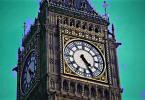It was one of the only clear policies David Cameron actually had. In the course of the leadership campaign late last year, he wowed Eurosceptics by promising to withdraw the Conservative group of MEPs from the right-of-centre European Peoples Party.
Cameron shocked my commentators by sticking by the policy when be became leader. The main issue with the EPP is that they support a federalist future for the EU. The Tories announced they were going to establish a new Euro-sceptic grouping in the Parliament.
Shadow Foreign Secretary William Hague has spent the last few months going across Europe to try to find other parties to join the group. EU rules state that there must be MEPs from five member states to be a proper parliamentary group.
It seems Hague failed. Under intense pressure from the likes of German Chancellor Angela Merkel, most of the right-wing parties have decided to remain in the EPP. In the end Cameron has been forced into a humiliating climbdown. Instead of withdrawing immediately, the Tories will remain until after the next Euro elections in 2009!
Eurosceptics denounced the leader just after Mr Cameron signed a joint declaration with Czech Civic Democrat leader Mirek Topolanek proposing a new group.
Even the Czechs had to concede, as leaving the EPP would have jeapordised negotiations for a coalition government in that country.
All this is a disaster for Cameron's internal leadership. He may be riding high in the polls, but the Tories very nearly lost the Bromley by-election. While most of the press coverage was about the LibDem gains, not enough attention was paid to UKIP. They nibbled away a considerable amount of votes, obviously people who do not feel that the Conservatives are Euro-sceptic enough.
Those 2009 Euro elections should be interesting - after all UKIP already have TWELVE MEPs - it could be that the Cameron effect will cleave away a large rump of disgruntled Tory voters.
skip to main |
skip to sidebar

political comment and analysis from Westminster.

Blog Archive
-
▼
2006
(168)
-
▼
July
(27)
- PM supports Israel, no matter what.
- Westminster is a village
- Oaten faces reality
- Trouble with broadband
- Commons Cafe
- August - our promise to you.
- MPs to get a vote on Trident renewal
- PMQ - end-of-term panto
- MPs Feel The Heat
- Could Labour declare bankruptcy?
- Yo Blair
- Blair speaks out
- Gremlins - no, not the film
- Cameron Delays Leaving EPP!!
- MP acts like Fascist Wanker
- Socialist MP will challenge for Labour leadership
- Blair on form at PMQ, but LibDems making the good ...
- Galloway and a cast of thousands slam the governme...
- cash-for-peerages - more sleaze!
- winding down
- Thanks for the questions
- 7th July - politicsjunkie reflects
- Prescott Hits Back - transcript
- Prescott bullish over casino-gate
- Connection Problems
- Rights of Scots MPs raised at PMQ
- The beginning of the end of the United Kingdom
-
▼
July
(27)